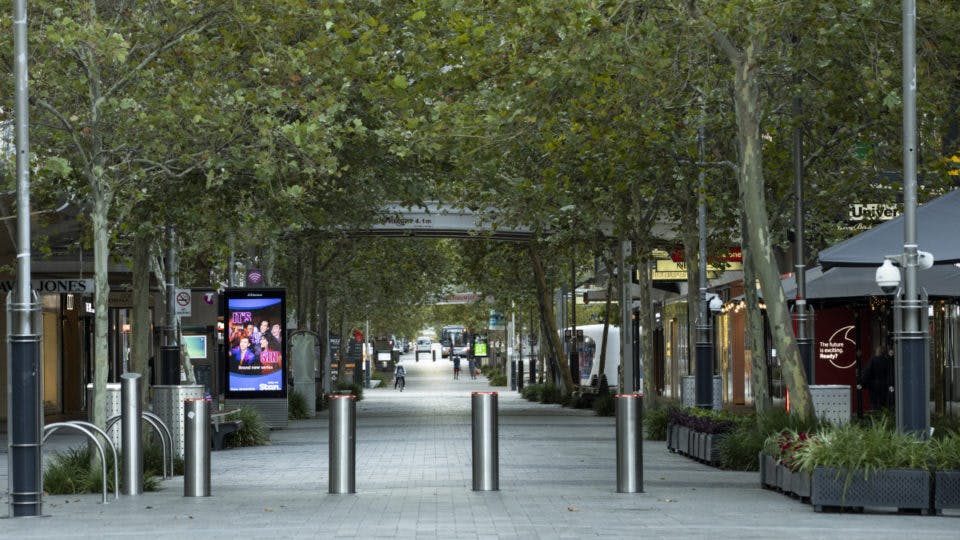Get the quarantine facilities out of the cities

Two million people in Western Australia are under stay-at-home orders because of a solitary transmission event out of the Perth’s hotel quarantine system. That a lockdown of so many people is probably the right and prudent response only highlights how ludicrous the hotel quarantine system is across the country.
Put aside for a moment the infuriating “mistakes” already made in other states that seem to have been repeated in Western Australia: no daily testing of quarantine staff, no high-grade personal protective equipment for staff, privately contracted part-time or casual security guards working second jobs to make up for their paltry pay, inadequate ventilation in the accommodation, lack of hand sanitiser and so on. There is a more fundamental problem.
Australia has eradicated community transmission of the virus several times. And the blindingly obvious reality (you need not be an epidemiologist or any other type of medical expert to understand this) is that the only path to a new outbreak comes through the quarantine system. Why, then, are those facilities located in the most densely populated parts of the country—right in the middle of our capital cities? It defies belief that 2 million people need to be locked down because of a single transmission. Those of us in Melbourne had to spend months in lockdown when the system failed us last year as well for the same reason: a solitary breach of the quarantine defences. Then Adelaide had a scare. In December and January, it was Sydney and Brisbane, after the virus escaped quarantine in those cities as well.
Lockdowns and mask mandates have worked in containing and then eradicating community transmission. Because of them, Australia has managed remarkably well, particularly when compared to the horrors unfolding in Britain, the United States, Europe, South Africa, Brazil and so on. But we have been incredibly lucky—if the federal government and the rabid anti-lockdown campaigners and business owners got their way, the virus would be running rampant in every state like it is in the rest of the world. Even now, Home Affairs Minister Peter Dutton and New South Wales Deputy Premier John Barilaro have criticised the Perth lockdown and border restrictions when they know that a more transmissible strain has escaped quarantine.
The “luck”, thus far, has been that most states are run by Labor governments that have stood up to the Liberals and the business push to keep the economy open. But the more outbreaks there are, the more pressure there will be to not lock down. With federal government support for the unemployed coming back to poverty levels, fewer people will be able to survive economically through future lockdowns, which will only add to the pressures. So stopping the quarantine breaches is paramount.
“I don’t think any system can ever guarantee that we won’t have transmission events”, New South Wales chief medical officer Kerry Chant said in December. If she is right—that, even in the best circumstances, with the best possible system, we should still expect the virus to “leak” from quarantine—then how can there be any justification for not building dedicated facilities away from major population centres? Places where, if there is a transmission event, it is already, in effect, contained?
The Australian government, like governments everywhere, is banking on a vaccine program to have the country back to relative normality by the end of the year. But there are signs that current vaccines will not be as effective, or effective at all, on some of the mutant strains of the coronavirus. The so-called South African strain, for example, is a worry. It will not be the last.
As the world is now fully aware, after a year of wall-to-wall media interviews with infectious disease experts, COVID-19 is neither the first, nor will it be the last, deadly infectious disease to emerge within the human population. Little is being done about the conditions that give rise to the viruses that cause such diseases.
These facts only reinforce the importance of the quarantine system, both now and potentially into the future. We know that coronavirus mutations are developing that are both more infectious and more resistant to current treatments and vaccines. We know that there will likely be other dangerous breakouts of different infectious diseases. We’re told that viruses will inevitably breach quarantine. And we know that we have a federal government and business “leaders” who kick and scream against serious measures to contain the virus, like lockdowns, when profits are at stake.
Isn’t it a no-brainer to replace city-based hotel quarantine with dedicated quarantine facilities that put the public another step out of harm’s way? The main requirements are, first, that the facilities are comfortable and safe for staff and those going through a period of quarantine—that is, a new quarantine system should not at all be like the current one. Second, the facilities need to be a good distance from major population centres and not use commuting staff, but well paid professionals housed on site so that we reduce as much as possible the chances of a single transmission event turning immediately into a series of suburban transmission events.
The Western Australian government’s response to its own ineptitude—to “go hard” and try to eradicate the virus before it spreads further—is the right one. Hopefully, only a few cases will eventuate and the outbreak will be contained. But there is already a clear lesson from each new episode of community transmission: it’s not worth the risk of locating the quarantine facilities in the cities. The only reason they remain there is that governments are trying to save money more than they are trying to save lives.